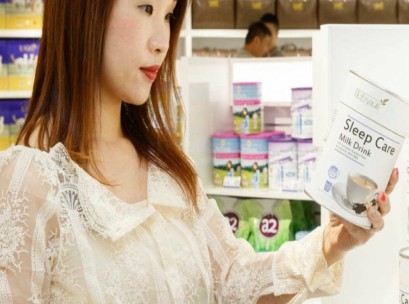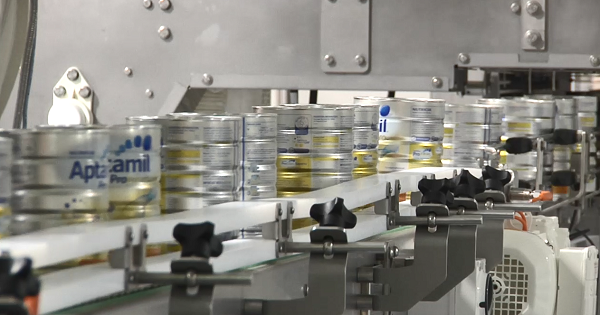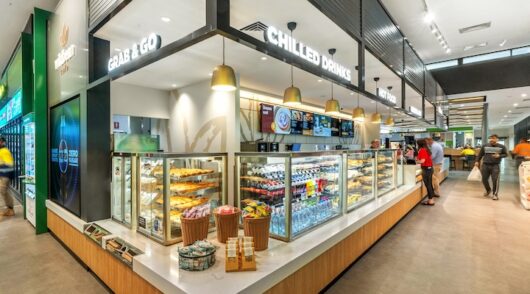 The issue with good problems is that they are just that – problems.
The issue with good problems is that they are just that – problems.
On Tuesday Wesfarmers-owned supermarket chain Coles moved to restrict access to baby formula in some of its NSW stores, moving them to shelves behind service desks near razors and cigarettes.
The decision came amid mounting criticism from customers in recent years about the daigou trade – the practice of buying Australian products like baby formula from Australian retailers for resale into China – leaving local mums confronting empty shelves.
The phenomenon isn’t new. Daigou have been the subject of local retail and FMCG industry fascination for around a decade, following a 2008 incident in China where six babies died from contaminated infant formula.
That highly publicised scandal opened the flood gates on Chinese demand for infant formula (as well as other products) manufactured in Australia and they’ve yet to close.
For major retailers, including Coles, Woolworths and pharmacists like Chemist Warehouse, daigou trade has made infant formula fly off the shelves. But more recently the major supermarkets have begun to cop increasing amounts of flak from customers either unable to purchase formula for their own children or outraged that local mums are being left out for re-sellers.
Both Coles and Woolworths now have a two-tin limit on formula purchases and while Woolies won’t be following Coles in putting tins behind the counter, it says it does work hard to enforce the product limit.
“We understand the frustration our customers feel when they can’t get the products they need,” a Woolworths spokesperson said.
“Baby formula remains available on the shelf for customers in Woolworths stores, and we’re continuing to work with our suppliers to increase the supply of these essential family items.”
But limiting supply doesn’t necessarily damper demand and industry stakeholders are increasingly looking away from the major supermarkets.
The changing face of Australia’s daigou trade
For AuMake International executive chairman Keong Chan Coles’ decision is good for business.
AuMake, which recently listed on the ASX, has established a growing portfolio of Australian retail stores specifically designed to sell to daigou shoppers that Keong said will readily pick up the slack.
“Coles and other major retailers were never set up to cope with Chinese demand,” Keong told Inside Retail. “There’s this huge market that’s developed and it just so happened that the [major supermarkets] were there.”
While there’s been chatter in the industry in recent years about whether the daigou trend may have peaked against the backdrop of more sophisticated supply routes into China, Keong is betting that there’s plenty of activity to come.
He says Chinese shoppers are still wary of online platforms and prefer trusted channels.
“Its still not completely trusted that everything [online] is genuine,” Keong said. “Daigou are really the best source for consumers to know that product is genuine and safe for their families to consume.”
More direct daigou channels needed
While Keong maintained that AuMake’s experience with Australia’s largest infant formula manufacturers has been positive, others say the likes of A2 milk and Aptamil have been dragging their feet on improving local distribution channels for daigou, forcing them into supermarkets.
Australia China Daigou Association (ACDA) president Matt McDougall believes retailers like Coles have been caught in the middle of an insufficiently sophisticated local supply chain for daigou re-sellers that’s reinforcing negative stereotypes of the community.
“[Coles] decision reinforces the proposition that daigou are evil doers taking infant formula from Australian mothers,” he said.
“It will just make daigou look for other sourcing options, it will be Woolworths, or Priceline or Chemist Warehouse.”

The ACDA was set up earlier this year in a bid to create standards around the growing daigou community in Australia and facilitate negotiations with major manufacturers to create direct channels to market.
But McDougall said there has been little interest shown from major manufacturers, who he believes will need to provide alternatives before the pressure on local retailers will ease.
“There’s no winners in this situation … the business is not going to go away, there’s still going to be a requirement for quality baby formula in China,” he said.
In the meantime, McDougall believes the abuse daigou shoppers are receiving is likely to intensify, as even Asian Australian mothers buying infant formula for domestic consumption have begun to be targeted by mistaken social media scorn.
A spokesperson for Aptamil and Karicare parent Danone Nutricia said it was committed to expanding its supply capacity, refencing a recent $25 million upgrade of its Auckland facility that has enabled the business to double its production capacity.
“Our top priority is to ensure that Australian parents and carers have access to our early life nutrition products,” the spokesperson said. “We do this by working closely together with Australian retailers, trusted partners and official channels.”
Danone also has a direct to consumer online store that facilitates online formula sales called mum store.
Keong said its become easier to source baby formula locally recently as supply chains adjust to new market norms but that it was still a difficult product to source.
“It’s still a difficult product to get but I’d would say its not as severe as what it once was,” he said.
“The main brands really do understand how important daigou are and they support it as best as they can.”






